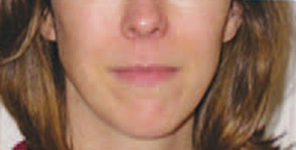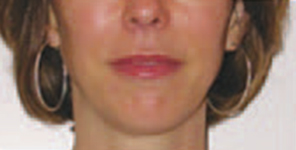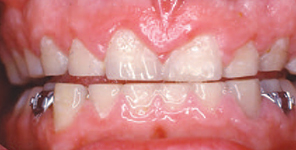Bruxism and Clenching

Clenching is closing the teeth tightly, often for prolonged periods of time. Itis a normal function when bearing down (as in weightlifting or constipation). The habit of clenching damages the teeth and the temporomandibular articulation; causes chewing muscle dysfunctions and pain. Bruxing is grinding of the teeth, usually at night and it’s sign of sleep disordered breathing.
OMT
HELPS

OMT provides awareness of the habit to the person who clenches; helps identify the connections between stress and clenching, as a stress management parafunction; provides strategies to reduce or eliminate clenching; identify some symptoms of disordered nasal breathing, which is often the main contributor to bruxing, or other symptoms of OSA, and make the appropriate referral.
IF NOT
TREATED

Clenching is a natural response to stress, but both prolonged stress and clenching have a well documented widespread effect on the orofacial muscles, and the mandibular and dental functions. Bruxism underlies sleep disorders, for which an appropriate assessment is needed. Bruxism also causes teeth damage, changes in occlusion, muscle pain, temporomandibular pain or discomfort.

16. Bruxism and Clenching
–Hosoya H, Kitaura H, Hashimoto T, Ito M, Kinbara M, Deguchi T, Irokawa T, Ohisa N, Ogawa H, Takano- Yamamoto T. Relationship between sleep bruxism and sleep respiratory events in patients with obstructive sleep apnea syndrome. Sleep Breath. 2014 Feb 14. [Epub ahead of print]
–Iida T, Komiyama O, Obara R, Baad-Hansen L, Kawara M, Svensson P. Repeated clenching causes plasticity in corticomotor control of jaw muscles. Eur J Oral Sci. 2014 Feb;122(1):42-8. doi: 10.1111/eos.12101. Epub 2013 Nov 20. –Huynh N1, Emami E, Helman J, Chervin R. Interactions between sleep disorders and oral diseases. Oral Dis. 2014 Apr;20(3):236-45. doi: 10.1111/odi.12152. Epub 2013 Jul 2.
–Alves AC1, Alchieri JC, Barbosa GA. Bruxism. Masticatory implications and anxiety. Acta Odontol Latinoam. 2013;26(1):15-22.